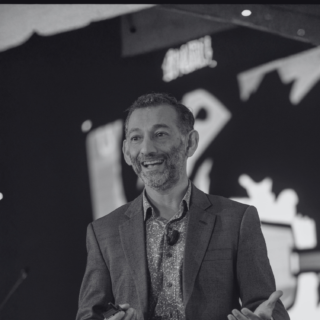Living by the Love Ethic
14 Apr
What is your first thought when you hear the word “love”? Do you think about your partner or significant other? What about love beyond the romantic circumference? When was the last time you found yourself fully, giving and receiving love?
All About Love by Bell Hooks urges us to recognise love as a transformative force. She defines love ethic as utilising:
-
all the dimensions of love—care, commitment, trust, responsibility, respect, and knowledge—in our everyday lives.
Bell Hooks
Committing to these sets of values and following a love ethic transforms our lives and the small or big decisions we make on a daily basis. Have you considered encounters with strangers to encourage your spiritual growth? If we are just going through life each day, without taking the dimensions of love in consideration, we live unethically.
In her book, Hooks questions society’s failure for creating a model on learning to love. Childhood is truly the original source for the models we grow up to have as adults. This is true whether you had a troubled or stable home. We are raised to think love is primarily associated with a fleeting good feeling either rewarded to you or neglected. Adults who don’t know how to love will raise children without love and justice. I encourage you to be kind and respectful of children. Far too often adults undermine the intelligence of children, and in an act of establishing power, we lose the trust and respect we must offer children. Ask children their needs and their feelings in a space with care. We will find more children growing up with foundations of love that aid their understanding of justice.
Romantic love is a source where many adults nurture their need for love. When such love is healthy, parties can encourage each other to implement a love ethic in all aspects of life beyond romance. Even so, romantic relationships don’t encompass the full scale of a love ethic. Living by a love ethic are active decisions and values an individual presents on a day-to-day basis with any relationship: family, friendship, partnership, environment. Doing so you will become the most authentic and passionate version of yourself.
Here is a good place to start for implementing a love ethic:
Having hard yet vulnerable conversations where you encourage grace and forgiveness. To love and be loved is to find compassion in your hearts.
Taking the time to step back and rekindle the relationship with oneself. Self-love is at the epitome of a love ethic.
Consider investing extra care into family or friendship connections that have gone ignored due to burnout and difficult work-life balance.
Making sure that your anger is a catalyst born of love, and not a justification for causing pain.
Show up for the people you love and your communities. Cultivate a natural sense of belonging for others. Introduce yourself, invite new people into the conversation and be as welcoming as can be.
Allow yourself to be fueled by love in times where you must stand up for yourself and others.
Love is the cornerstone of compassion and forgiveness, two necessary concepts in driving radical change. Without an understanding of all the dimensions of love, we will fall short of engaging with people and the planet in the way we would want to be treated.
-
Indeed, all the great movements for social justice in our society have strongly emphasised a love ethic
Bell Hooks
By cultivating courage and strength in what we believe in we will be both accountable for our words and actions. It is the fear of radical change that leads people to betray our minds and hearts, and subsequently shut down a love ethic that can inspire us and give us the courage to make necessary changes. Love is not for the weak. It is the most courageous and selfless act we can do.


